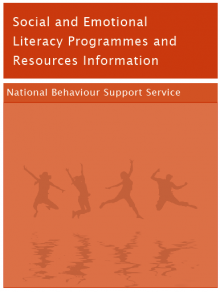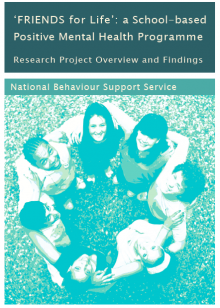At Level 2 the NBSS supports schools in developing students’ social and emotional literacy and wellbeing by developing skills such as self-awareness, managing feelings, motivation, empathy, accepting constructive criticism and feedback, accepting praise, anger management and communication skills with targeted groups of students.
The NBSS works with schools in developing a continuum of support to address students’ social and emotional and positive health and wellbeing needs at Level 1, 2 and 3, for example by:
- Implementing Belonging Plus - NBSS transition and transfer programmes
- Explicitly teaching social skills
- Providing teacher CPD on motivating every learner and using a solution focused approach
- Implementing the ‘FRIENDS for Life’ programme, a school-based positive mental health programme that helps students to develop effective strategies to deal with worry, stress and change and teaches the skills required to reduce anxiety and promote resilience
- Developing 'Check and Connect' adult mentor systems
- Conducting environmental audits
- Supporting students' speech, language and communication needs
- Implementing the ‘ALERT’ programme to help students monitor, maintain and change their level of alertness so that it is appropriate to the situation or task
- Employing the Working Things Out and Parent Plus programmes to educate adolescents about positive mental health
- Operating the 'Why Try?' programme to teach students critical social and emotional skills required for success in school and life after school
Developing social and emotional literacy and positive health and wellbeing skills with students impacts positively on learning and behaviour. From the research literature there is evidence that working on emotional and social competence and wellbeing has a wide range of educational and social benefits, including greater educational and work success, improved behaviour, increased inclusion, improved learning and improvements to mental health.
“Students who are anxious, angry, or depressed don't learn; people who are caught in these states do not take information effectively or deal with it well…powerful negative emotions twist attention toward their own preoccupations, interfering with the attempt to focus elsewhere…When emotions overwhelm concentration, what is being swamped is the mental capacity cognitive scientists call 'working memory', the ability to hold in mind all information relevant to the task at hand…. On the other hand, consider the role of positive motivation - the marshalling of feelings of enthusiasm, zeal, and confidence - in achievement.”
(Daniel Goleman 1995).



